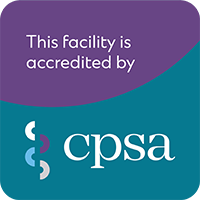Pelvic Floor Physiotherapy Edmonton South

BUILDING A FOUNDATION
Pelvic physio strengthens and balances core and pelvic floor muscles

BOWEL AND BLADDER CONTROL
Treat internal muscles to keep you dry and regular

ONE-ON-ON CARE
Dedicated time to develop an individualized care plan
What Is Pelvic Floor Physiotherapy in Edmonton South?
The pelvic floor is a group of muscles that run from the pubic bone to the tailbone and ischial tuberosities (sit bones), and functions to maintain bowel and bladder continence, provide support to the pelvic organs, stabilize the spine and pelvis, and contributes to sexual satisfaction.
These muscles must be able to contract to maintain continence and relax to allow for urination, bowel movements, and in women, sexual intercourse. Oftentimes, issues in these areas are a result of pelvic floor hypertonicity or hypotonicity – conditions which require very different treatment approaches. As such, it is important to know the cause of your pelvic dysfunction before engaging in a pelvic floor rehabilitation program. A pelvic floor physiotherapist can assess this for you. Doing Kegel exercises may not always be the best course of action, and may even worsen your symptoms.
Pelvic Floor Dysfunction can be a result of: muscular overuse or underuse, injury (fall, car accident, and sport injury), pregnancy/child birth, surgery, gynecological cancer and treatment, autoimmune conditions (Multiple Sclerosis), poor posture and alignment, menopause and aging, or lifestyle factors and stress.
Indicators That You Should See a Pelvic Floor Physiotherapist Near You
- If you suddenly have bowel incontinence.
- If you are urinating more frequently but only passing small amounts of urine.
- If your bladder feels full even after you urinate.
- If you have difficulty urinating when your bladder feels full.
- If you experience very strong and sudden urinary urgency.
- If you observe any of the symptoms associated with pelvic organ prolapse.
- If you are experiencing pregnancy-related pain.
- If you have recently had a baby.
- If you are experiencing bladder, bowel, or pain issues post-partum.
- If you have pain during intercourse.
- If you have pain with using tampons or with your annual PAP test.
- If you have mastitis.
- If you have tailbone pain.
- If you have pelvic region pain or unexplained hip pain, abdominal pain or low back pain that has not responded to traditional rehabilitation.
What a Pelvic Health Physiotherapist Can Do for You?
Assess and treat pelvic floor strength
- Are you doing your Kegel’s properly?
Assess and treat issues commonly associated with pregnancy including:
- Pelvic organ prolapse, diastasis recti, coccydynia, incontinence, pelvic pain, back pain, mastitis, CTS, symphysis pubis dysfunction
Assess and treat muscular/soft tissue dysfunctions
- Including scar tissue and adhesions
Assess and treat other contributing orthopedic issues
Develop appropriate home pelvic floor exercises /stretching programs
Provide advice when starting behavioural changes
Use of modalities – muscle stimulation, Therawand, pelvic support belts, K Taping, TENS, acupuncture, and laser.
Referral to other appropriate health professionals
What To Expect in a Pelvic Health Physiotherapy Assessment and Treatment?
Initial assessments are typically about 45-60 min long and follow-up treatments can be 25-60 min depending on the treatments required.
SUBJECTIVE ASSESSMENT
Similar to other physiotherapy assessments, your therapist will begin your initial appointment by doing a detailed medical history with you. Come ready to answer questions regarding:
- Signs and symptoms
- How long has this been going on?
- Mechanism of injury (How did it start)?
- Has any medical intervention been done?
- Surgeries or medical conditions
- Previous injuries
- Pregnancies & Deliveries
- Bowel and Bladder Habits
- Dietary Habits
- Sexual History
- Goals of Treatment
OBJECTVE EXAMINATION
Depending on the subjective assessment, your therapist may want to complete any of the following physical assessments with you:
- Standing posture
- Surgical incisions
- Joint Active/Passive Range of Motion and Joint Play
- Sensation and Reflexes
- Abdominal Wall
- Surgical incisions
- Internal and external Pelvic Floor Muscles
- Any other associated external muscles
- Internal and external Pelvic Floor Muscles
- Any other associated external muscles
- Internal and external Pelvic Floor tests
- Any other associated external muscle & joint tests
INTERNAL EXAM
The need for vaginal and/or rectal internal examination is determined on a case-by-case basis.
The purpose of the internal exam is to directly assess the tissues of the pelvic floor for length, tension, strength, and function. This is the gold standard to identify tissues that may be contributing to pelvic symptoms. It is also used to ensure proper performance of Kegel strengthening exercises.
Common Conditions Treated by Pelvic Physiotherapy
PREGNANCY/POST-PARTUM ISSUES
The natural changes of both pregnancy and delivery (either vaginal or C-section) impact the pelvic floor muscles and connective tissue, often causing discomfort and pain for women either during pregnancy (pre-partum) or after delivery (post-partum).
Pelvic physiotherapy during pregnancy can help to treat any pregnancy pain or discomfort as well as optimize delivery and prevent perineal tearing and other post-partum dysfunctions.
Post-partum it is beneficial for all new moms (whether this is your first child or if you are already a mother) to have their pelvic floor assessment by a pelvic health physiotherapist prior to getting back to their normal or any new activities. This early intervention can help address any concerns and enable new moms to return to functional and active lives while preventing future pelvic floor issues. Note that the earliest a pelvic physiotherapist will assess you post-partum is after 6 weeks AND after you have already had your follow up with your OBGYN.
MASTITIS
Mastitis is an inflammation of breast tissue that sometimes involves an infection. The inflammation results in breast pain, swelling, warmth and redness. You might also have fever and chills. Mastitis most commonly affects women who are breast-feeding (lactation mastitis).
URINARY INCONTINENCE
Involuntary loss of urine and the inability to hold urine until an appropriate time and place can be found to empty the bladder. Common types of urinary incontinence include stress urinary incontinence and urge urinary incontinence.
OVERACTIVE BLADDER
Overactive bladder is a condition where there is a frequent feeling of needing to urinate to a degree that it negatively affects a person’s life. The frequent need to urinate may occur during the day, at night, or both. If there is loss of bladder control then it is known as urge incontinence.
PELVIC ORGAN PROLAPSE
The condition usually occurs when the pelvic floor collapses, resulting in pelvic organs slipping out of place and possibly protruding through the vagina or rectum.
PELVIC FLOOR WEAKNESS
Having strong pelvic floor muscles is essential in maintaining control over the bladder and weakened pelvic floor muscles mean the internal organs are not fully supported and may result in issues with bowel and bladder control (incontinence) and/or pelvic organ prolapse.
COCCYDYNIA
Coccydynia is inflammation and pain localized to the tailbone (coccyx).
DYSPAREUNIA
Dyspareunia is persistent or recurrent genital pain that occurs just before, during or after intercourse.
VAGINISMUS
Vaginismus is involuntary contraction of muscles around the opening of the vagina in women with no abnormalities in the genital organs. The tight muscle contraction makes sexual intercourse or any activity that involves vaginal penetration (use of tampons, PAP exams) painful or impossible.
VULVODYNIA
Vulvodynia is chronic pain or discomfort around the opening of the vagina (vulva) for which there is no identifiable cause and which lasts at least three months.
DIASTASIS RECTI
Diastasis recti is the separation of the muscles along the midline of the abdomen, typically seen in women during and after pregnancy.
UNEXPLAINED LOW BACK, HIPS, OR PELVIC GIRDLE PAIN
Pain in the low back, hips, or pelvic girdle that has not responded to traditional treatment methods for rehabilitation may have a pelvic floor component involved.
Pelvic Floor Dysfunction Treatment
Depending on the findings of your combined subjective and physical examinations, your therapist will discuss their findings with you and present options for treatment and management. Common treatments may include any of the following:
- Impression of Issue
- Anatomy
- Activities to avoid to prevent further damage
- External or internal Pelvic Floor soft tissue mobilization
- Pelvic floor muscle training (Kegels)
- Bladder Training
- Myofascial tissue release
- Scar mobilization
- Visceral manipulation
- Electrical muscle stimulation
- Joint mobilization
- Traditional Chinese Medicine Acupuncture or cupping
- Dry needling
- Ultrasound
- Shockwave
- Laser
- Cushions
- Behaviour/Lifestyle Modification
- Home Exercise Program
BOOK YOUR APPOINTMENT TODAY
Don’t let Pelvic Health issues slow you down. Getting the right pelvic health physiotherapy can make a real difference and improve your quality of life. Schedule an appointment at Body Restoration and let’s get you back to feeling great again



